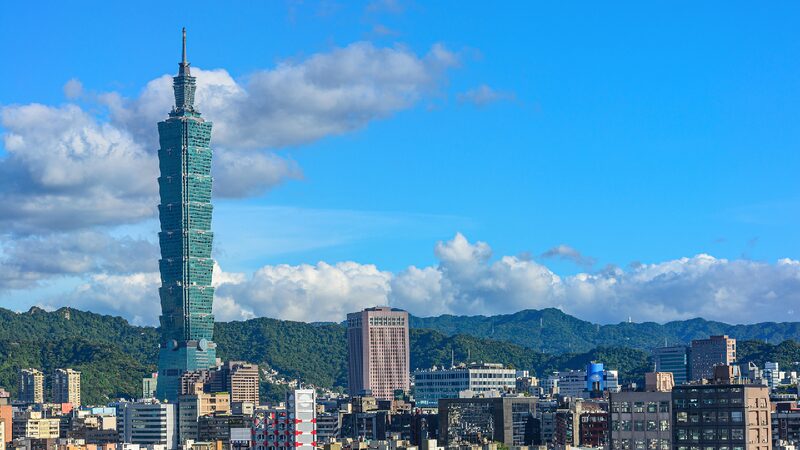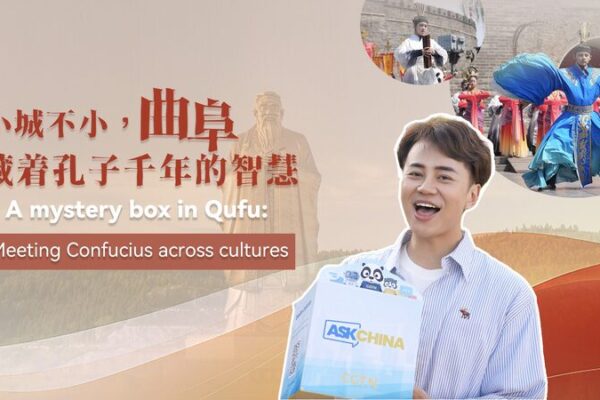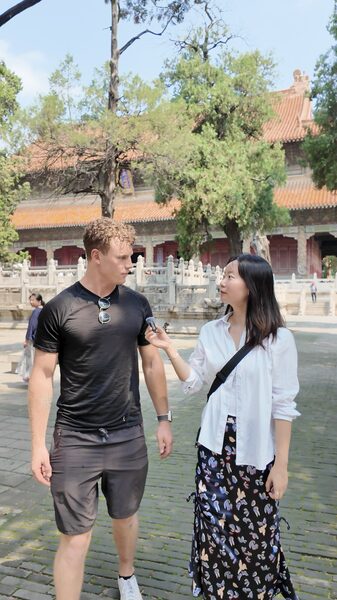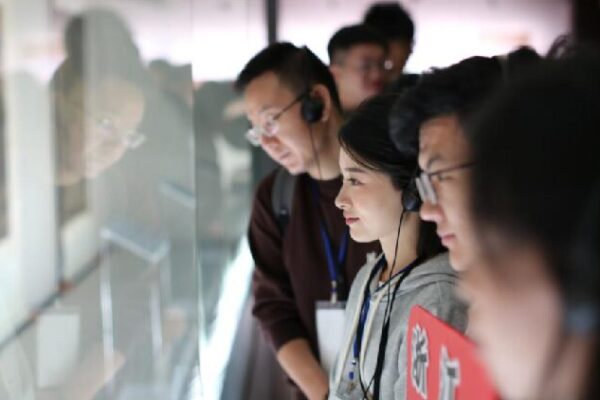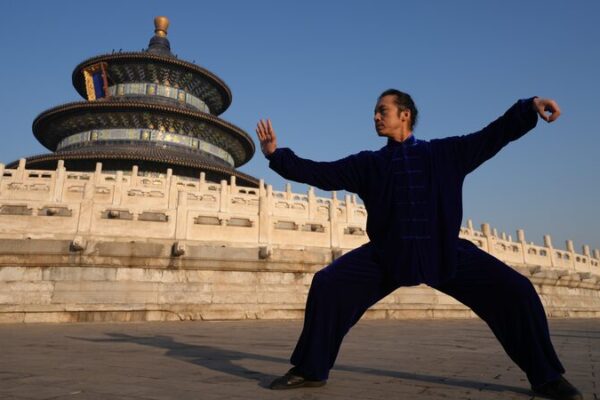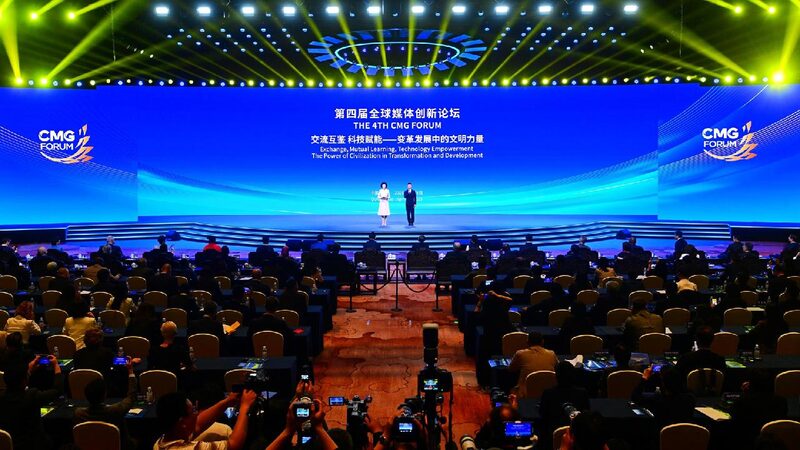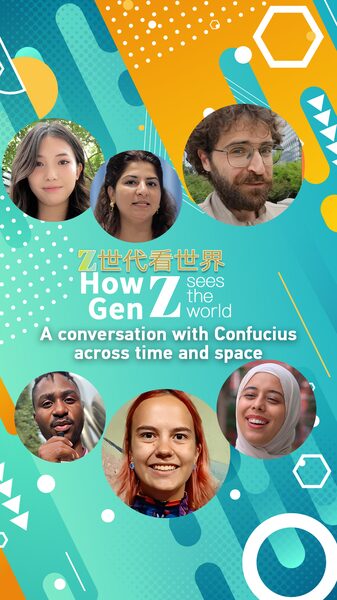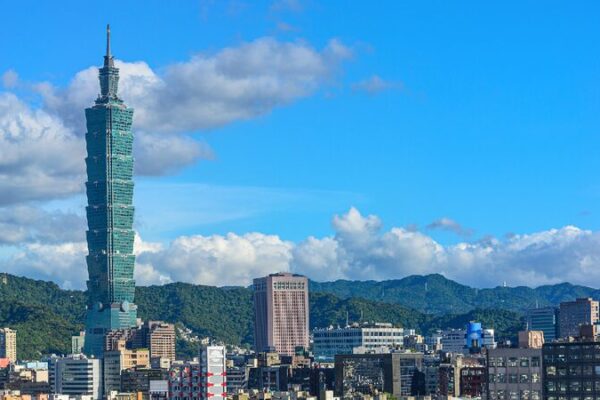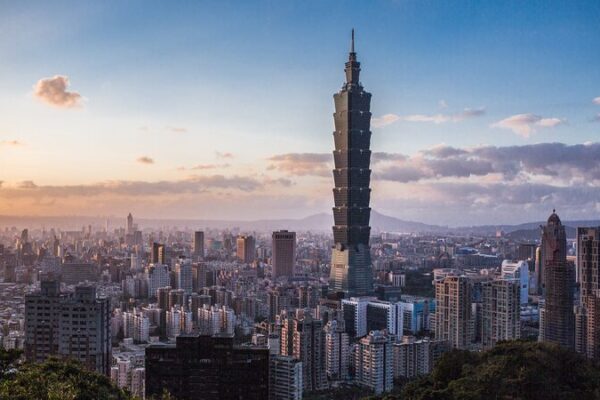A group of 30 young people from Taiwan has concluded an eight-day visit to China’s eastern Shandong Province, wrapping up a cultural exchange aimed at strengthening ties across the Taiwan Strait.
Led by Hsiao Hsu-tsen, executive director of the Ma Ying-jeou Culture and Education Foundation in Taiwan, the delegation embarked on their journey on March 28. During their visit, they participated in a cross-Strait Confucius cultural exchange event and explored historical sites in cities such as Tai’an and Zaozhuang.
The delegation paid homage at the Temple of Confucius in Qufu, the hometown of the ancient Chinese philosopher. They engaged in traditional ceremonies to honor Confucius, reflecting the shared cultural heritage between both sides of the Strait.
“People usually pray for success in exams and academic progress at the Confucius Temple in Taiwan,” said one of the young participants. “This time, I prayed for realizing my dream of becoming a civil engineering technician.”
Hsiao emphasized the profound emotional significance of traditional activities like those honoring Confucius and the Yan Emperor. “These rituals are shared spiritual bonds for people on both sides of the Taiwan Strait,” he said. “They play a crucial role in strengthening cross-Strait relations.”
He added, “This shared cultural understanding demonstrates the inseparable cultural ties between the two sides. No matter how external forces may try to interfere, this inherent and close connection cannot be severed.”
Coinciding with the approach of the Qingming Festival, a traditional time for honoring ancestors, the delegation attended a flower-wreath-presenting ceremony at the Taierzhuang War Memorial Hall in Zaozhuang. They laid flowers at a monument commemorating the Battle of Taierzhuang, paying tribute to the heroes who fought during the Chinese People’s War of Resistance Against Japanese Aggression.
The delegation also visited a cross-Strait themed park in Taierzhuang, engaging in friendly exchanges with youth from the mainland. “Cross-Strait people-to-people exchanges are essential,” Hsiao noted. “The more people understand each other, the more consensus there will be, and fewer misunderstandings. Therefore, we continue to promote various exchanges.”
Earlier this year, Hsiao led a group of about 40 students from Taiwan to Beijing for cultural and sports exchanges. Additionally, the foundation previously invited 40 students and faculty from seven mainland universities to Taiwan, where they received a warm welcome.
The delegation’s visit highlights the ongoing efforts to foster mutual understanding and strengthen the bonds between young people on both sides of the Taiwan Strait through shared cultural experiences and open dialogue.
Reference(s):
cgtn.com
